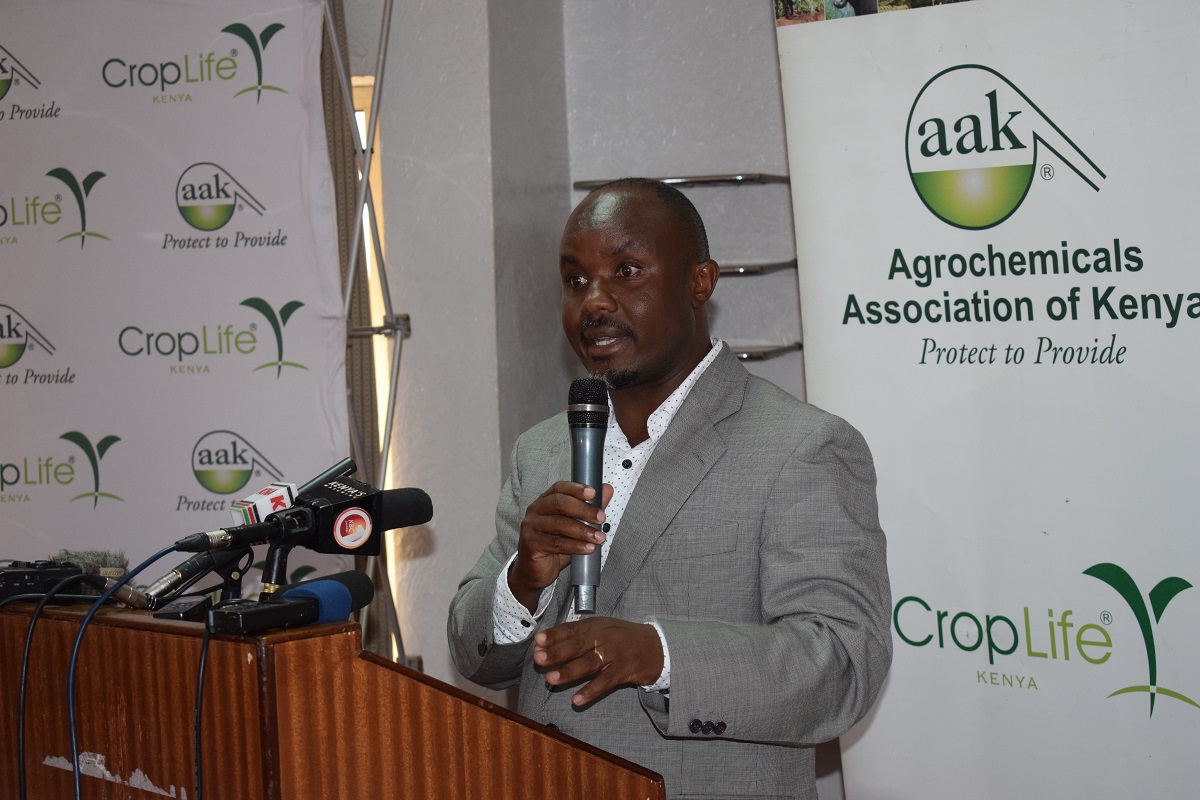A move to secure a ban by parliament of 262 pesticides approved for use in Kenya would slash the country’s maize production by 70% and create a ballooning locust problem.
In addition to these, the ban could lead to the collapse of the agriculture sector according to growers and scientists who want President Uhuru Kenyatta to uphold the pest control law.
The growers and scientists say that the president has to move swiftly to prevent a food catastrophe which is possible if the pesticides are banned.
The scientists who comprise of the agricultural and industry organisations have called on the government to intervene to secure due process in the country’s pesticide regulation. This is amid warnings that a current initiative by four NGOs could wipe out the country’s food production within months.
Locusts and Fall Armyworm
The growers warn that the move to ban pesticides being used to curb locusts and fall armyworm will lead to crop devastation.
According to the UN, the locust problem is far from over with weather conditions favouring the desert locust breeding.
The desert locusts, which have not been seen in Kenya for over 70 years, are said to have bred in high numbers due to ecological conditions that are favourable for their breeding. Unusual weather and climate conditions have contributed to the spread, including heavy and widespread rains since October 2019.
In response to a petition to parliament seeking the banning of the products that are currently being used to prevent the infestation of Kenyan maize by fall armyworm and to curb the locust invasion in northern Kenya, the growers say that such a move would be counterproductive.
The petitioners want the pesticides banned following a change in the European pesticide regulation. The regulation has seen the EU abandon risk assessment as a basis for approving pest control products.
Instead of considering the safety of products when they are used in pest control, as it happens elsewhere in the world, the EU now approves products only where they are non-hazardous in all circumstances, meaning, for instance, that consumers could safely drink them.
“The consequences of changing our pesticide approval criteria, by default, without changing our current laws, without scientific assessments, and as an appeal to elected members of parliament who have no background on pesticide approvals, will be literally catastrophic,” said Fresh Produce Consortium CEO, Ojepat Okisegere.
“We lost 70% of our maize production in 2017 to fall armyworm, which is now restored due to pest control. If we now ban the pesticide, we shall move back to crop devastation, in an environment where pest infestation is skyrocketing across our agricultural production,” he said.
The pest infestation rate for cabbages would move to around 98%, tomatoes to 24%, produce such as flowers, French beans and soybeans, to around 66%, and 40 to 80% on wheat and other crops, he said.
“Pest such as Tuta absoluta, which is notorious in attacking tomatoes can wipe out 100% of the yields within days, and attacks whenever the host is available. Female pests can produce up to 260 eggs in 21 days, while stem borer, FAW and cutworms have been the famous pests attacking our maize crops cutting our yields by almost half,” said Ojepat.
The ban would leave farmers grappling with pests like aphids, whiteflies, thrips, moths, and spider mites, weeds and fungi’s that farmers, as well as locusts, which have now spread in Wajir, Marsabit, Samburu, Garissa, Isiolo counties and are already depleting northern Kenya’s food supply.
Organic Farming Methods
Locusts can cause 80 to 100% crop losses, leaving behind barren land.
“The organic farming methods being pushed with the pesticide ban petition cannot beat a locust invasion such as this one: we need pesticides to fight them and salvage the little food that still exists,” said Ojepat.
Currently, through the Ministry of Agriculture’s consultation with FAO, the government is fighting the locusts with pesticides such as Fenitrothion, which is in the petitioners proposed list of pesticides to be banned.
“If we ban the use of insect pesticides such as Fenitrothion used to eradicate desert locust, close to Sh22bn worth of food produce such as wheat, maize will be lost this year alone,” said Dr Evelyne Samita, a member of the Entomology Society of Kenya.
Overall, the ban would affect crops and livelihoods in five agriculture producing regions, with Rift Valley and Central set to be the hardest hit, followed by Western, Eastern and the Coast.
“Just 10 of the pest control products in the list are used in over 20 crops spanning maize, French beans, flowers, beans, cabbage, wheat, potatoes, tomatoes, soybeans, onions, rice, bananas, and fruits among others. Banning these pesticides means the production of these crops would be slashed,” said Joel Mutai Regulatory & Liaison Manager, Agrochemicals Association of Kenya.












![Kenya Kwanza Deputy Presidential candidate Rigathi Gachagua, William Ruto's running mate in the August polls, arriving for the Deputy Presidential debate on Tuesday, July 19, 2022/. [Photo/ CFM]](https://businesstoday.co.ke/wp-content/uploads/2022/07/RIGATHI-CUEA-ARRIVAL.jpg)
Leave a comment